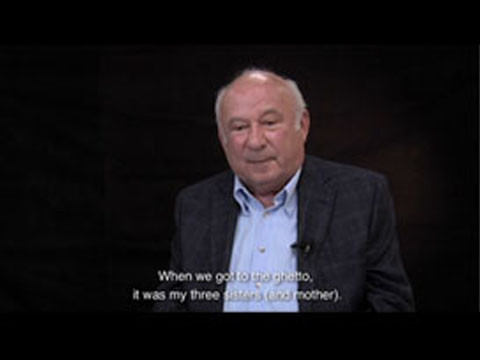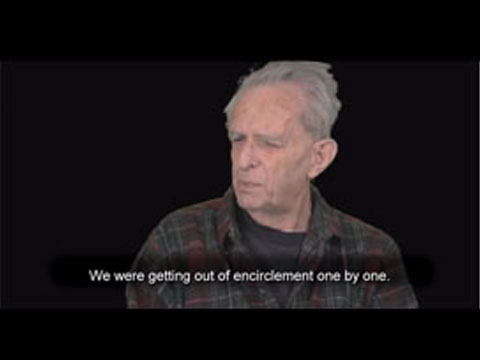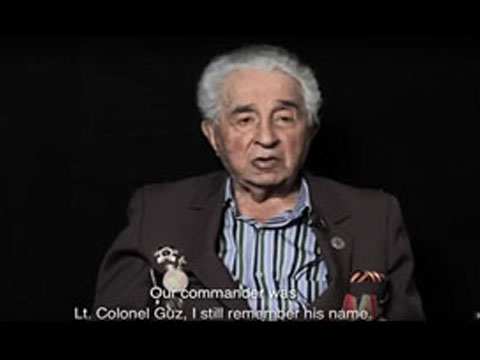
Abram Gamer
Born 1938 Minsk, Belarus
Interviewed In: Calgary, Alberta
Medals Awarded: Victory over Germany In The Great Patriotic War
“We walked as far as 10 or 15 km away from Minsk.”
Jewish Partisans, Zorin’s detachment
At the start of the war Dyman was forced to move to the Minsk Ghetto with his mother and older brother.
“At first, when the war started, we, like all people who didn’t wish to be under the Germans, ran away. However, we didn’t run too far because my mother was sick. We walked as far as 10 or 15 km away from Minsk.”
Survival in the ghetto meant having to sneak out to find food and supplies.
“In order to provide for myself and, first of all, for my mother, I managed to crawl under the barbed wire… I found a place…I used to come by his place to pick up whatever he had available…and I went back. That’s how we tried to survive, my mother and I. One fine day I went to his place… they weren’t there.”
“I had to look for food in cesspits. Some people helped me, giving a piece of bread, or a beet root, or a potato. I took everything home and gave it to my mother.”
In June of 1943, Dyman joined Zorin’s partisan detachment. “They washed me, and gave me a little food. They wanted me to be in the family unit. I told them I was going 15 or 16 years old. I was able to be of service. Long story short, they sent me to a unit they called an outpost. That was a place, a few… 2 or 3 km away from the camp. It was a place where someone could possibly get into the camp, I mean a spy or Germans… it was an observation post.”
After being wounded during the siege, Dyman recovered and was sent on missions to protect the local villiages and fight the Germans. “We blew up a number of bridges. I was sent on a mission 2…rather 3 times. I was an assistant, going on missions with the squad, like a horse. We knew this: if the Germans got to our camp, they would kill everyone and take with them everything we had. We took our positions. The Germans showed in view and the fight started. At that time I had a German gun, a good carbine. Our commander, Zorin, RIP, started yelling, “Surrender, we’re going to shoot you!” Of course, the Germans were not going to obey. Long story short, he started shooting, he was hit in the knee. Afterwards a tank unit approached us.”
Dyman’s detachment won the battle and he was reunited with his family. “My uncle, my aunt and two cousins stood along the road waiting for our detachment. They recognized me and I went along with them. I went to a military commissar’s office, put my gun in the corner and went away. That was when the war was over for me.”

Born 1938 Minsk, Belarus
Interviewed In: Calgary, Alberta
Medals Awarded: Victory over Germany In The Great Patriotic War

Born June 27 1923.
Interviewed In: Toronto, Ontario
Medals Awarded: Order of the Patriotic War (1st and 2nd Class), Order of the Red Star, Medal for Battle Merit, Medal for Courage, Liberation of Riga and Victory over Germany In The Great Patriotic War

May 20, 1923 Kiev
Interviewed In: Toronto, Ontario